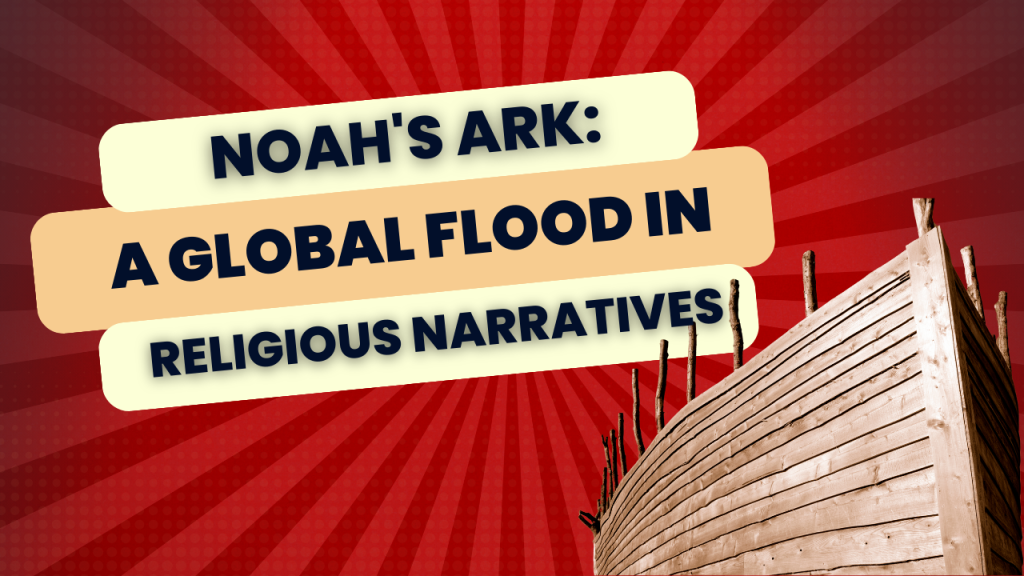
The tale of Noah’s Ark, a global flood, and the subsequent repopulation of the Earth is a story that transcends religious boundaries and cultural differences. Found in various religious narratives, this universal flood myth has captivated the imaginations of people across civilizations. In this article, we will explore the common threads and unique variations of the global flood story in different religious traditions.
I. The Genesis Flood Narrative
The Biblical Account
The most well-known rendition of the global flood narrative comes from the Bible, specifically in the Book of Genesis. According to this account, God, displeased with the wickedness of humanity, instructs Noah to build an ark to save himself, his family, and two of every kind of animal. The floodwaters cover the entire Earth for 40 days and 40 nights, cleansing the world of sin.
Example: Noah’s Ark in Christianity
Christianity sees Noah as a righteous man chosen by God to preserve life on Earth. The story of Noah’s Ark is often taught as a moral lesson, emphasizing obedience, faith, and the consequences of wickedness.
II. The Mesopotamian Influence
Epic of Gilgamesh
Long before the Bible, the Epic of Gilgamesh, an ancient Mesopotamian narrative, recounted a similar tale of a global flood. In this version, the hero Utnapishtim receives instructions from the gods to build an ark and save himself, his family, and various animals. This flood is unleashed to wipe out humanity’s corruption.
Example: Ziusudra in Sumerian Mythology
In Sumerian mythology, Ziusudra is the hero who survives the great flood. The parallels between the Sumerian and later Biblical flood stories highlight the interconnectedness of ancient narratives.
III. Hinduism: Manu and the Matsya Avatar
The Hindu Perspective
Hinduism presents its own flood narrative in the form of the Matsya Avatar, where Lord Vishnu takes the form of a fish (Matsya) to save the sage Manu and the Saptarishi (seven sages) from a deluge. Manu, like Noah, is chosen to preserve life and knowledge.
Example: Matsya Purana
The Matsya Purana, one of the eighteen Mahāpurāṇas of Hindu literature, elaborates on the story of Matsya Avatar. It emphasizes the cyclical nature of time and the divine duty to protect righteousness.
IV. The Quranic Account
Prophet Nuh (Noah) in Islam
In Islam, the story of the flood is also present in the Quran. Prophet Nuh (Noah) is chosen to warn his people of their wrongdoing, but they refuse to listen. God instructs Noah to build an ark, and the floodwaters come, sparing only those on the ark.
Example: Lessons from the Quran
The Quran uses the story of Noah as a moral lesson, emphasizing the consequences of disobedience to God’s commands and the importance of faith and patience.
Noah’s Ark and the global flood narrative have left an indelible mark on the world’s religious and cultural heritage. Across different traditions, the common themes of divine punishment, righteous preservation, and renewal echo the shared human experience of grappling with the consequences of moral choices. While the specifics may vary, the universality of this story underscores its enduring power to convey lessons about morality, obedience, and the divine. As we explore these diverse narratives, we gain insights into the human quest for meaning and the ways in which different cultures have sought to explain the mysteries of creation and redemption.